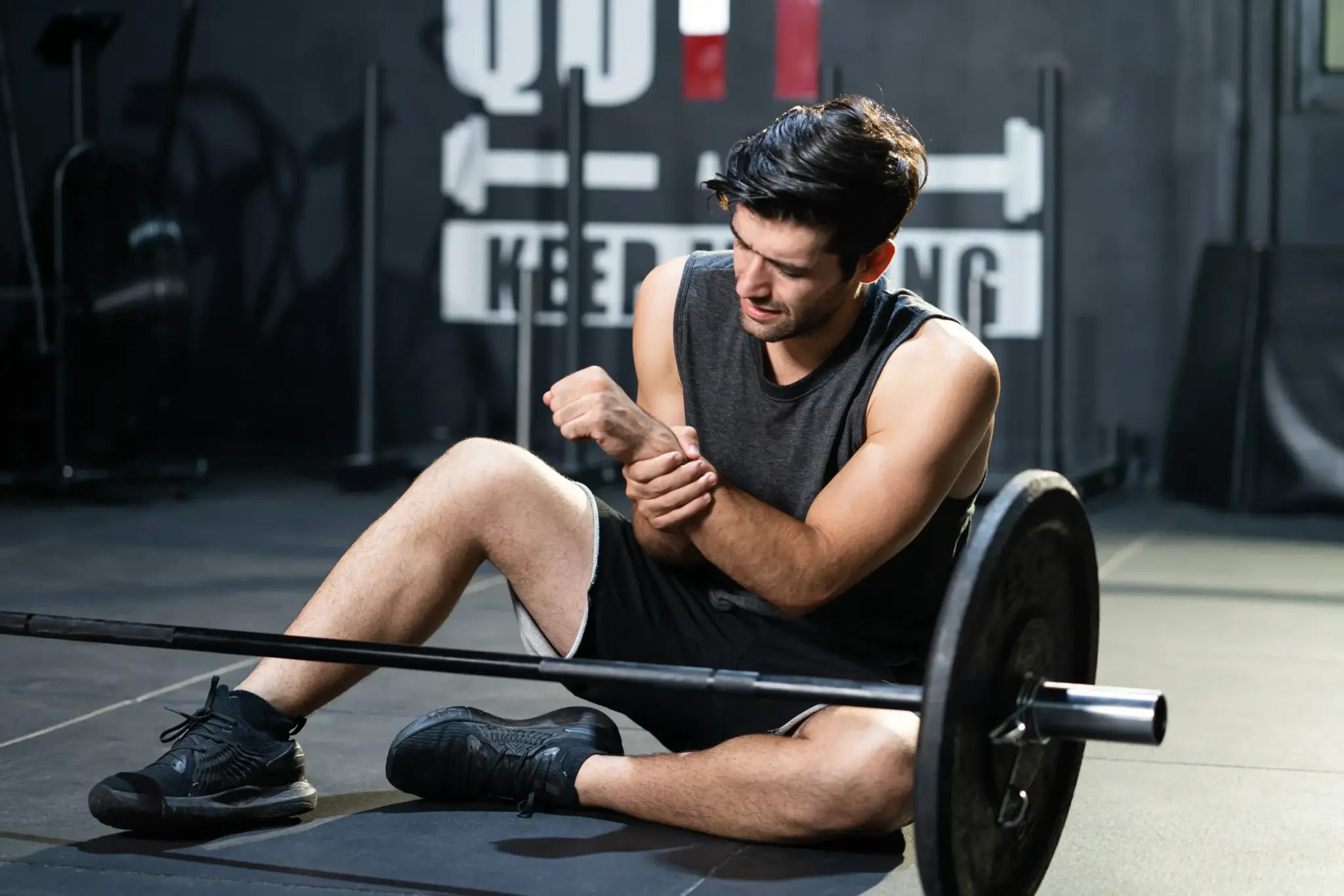
Common Weightlifting Muscle Strains & Nutrition to Help Prevent Them!
September 5, 2025
Share
Weightlifting demands brute strength; it’s an all-out effort, including deadlifts, full-range-of-motion heavy-weight leg squats, heavy barbell bench presses for chest muscle, bicep curls, throwing weights, wrestling, and gymnastics, all of which require neuromuscular coordination to work together in repeated intervals.
This heaviest pull-off weight is essential for the strength of our muscles, and our nervous system and muscle tissues are engaged heavily to enable body movement, which means it sets our mind to be ready to end up lifting heavy, so we feel brave to explode in a gym session to lift the heaviest easily.
A Purposeful walk, let’s do it in determination!
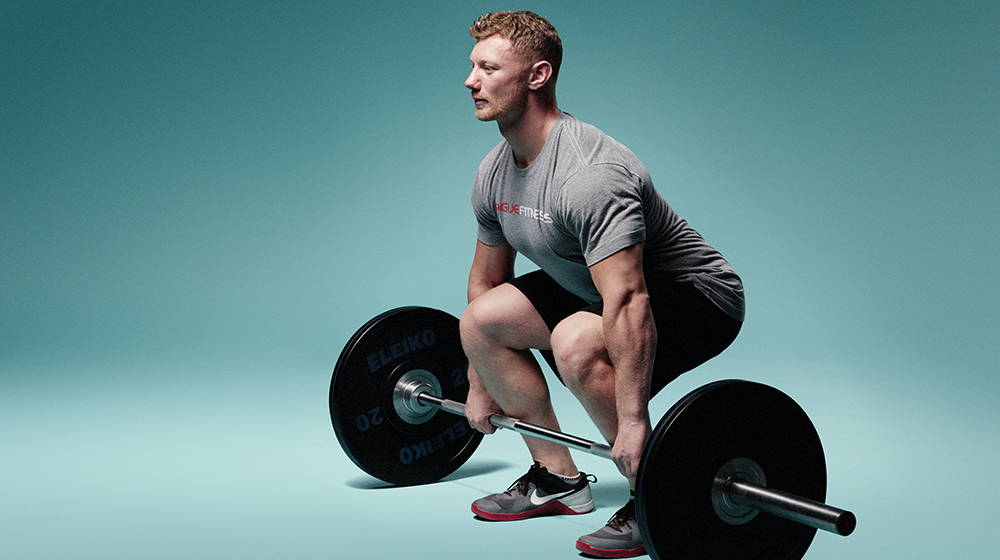
You step up with determination at the gym, you know that pain gives you the strength for tomorrow. Sometimes you may enjoy a high-intensity workout routine in each session that you actually maintain over the long term. You walk into the gym, and a little voice in your head says, “Today, we are lifting heavy.” You pick up the bar, and it feels like a monster. This incredible pull during strength training does more than just make you strong. It gets your mind ready to lift heavy, so your courage and willpower feel you brave enough to honour your personal best.
Physical Effort Yields Rewards!
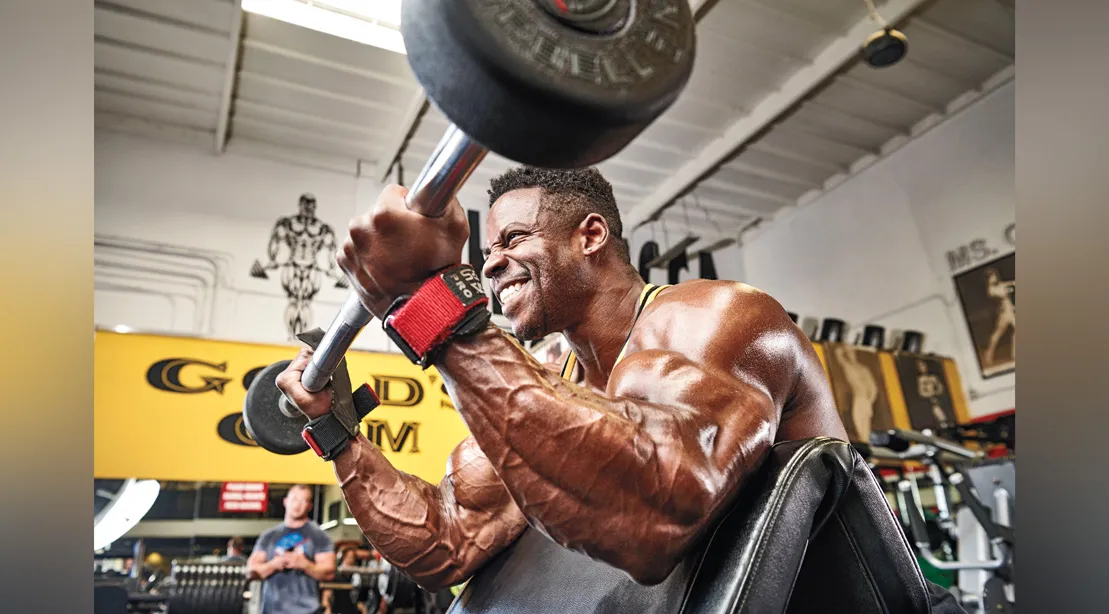
Every drop of sweat can transform your body, you start to burn calories. This physiology of lifting heavy demands the critical role of nutrition for your body. You need essential vitamins, minerals, amino acids, complex carbohydrates, protein, unsaturated fatty acids, antioxidants, and other nutrients that help boost your energy. Good nutrition can optimise your performance before, during and after competition days. It supports your rigorous training program and helps you bounce back faster (effective recovery) between gym sessions.
Credible science behind widely accepted diet plans and lifting weights contributes to a supportive element for nearly all athletes. It makes you stronger, gives you more stamina, lifts your endurance, gives you more power, makes you faster and overall increases your resilience. For this winning journey, nutritional interventions and substantial improvement in diet policies, strategies, and programmes could ensure faster post-exercise recovery, and visible muscle growth is indispensable in exceeding limits to create tomorrow’s success and sustain growth.
We analyse here some comprehensive reviews and explore how weightlifters can optimise their performance through targeted nutritional strategies, including why weightlifting muscle strains happen. We will also figure out what the common symptoms and causes of Muscle strains are. And how can nutrition play a role to speed up muscle strain recovery after prolonged exercise?
Resistance training is a common pursuit for many Americans, from fitness-conscious individuals to world-class athletes.
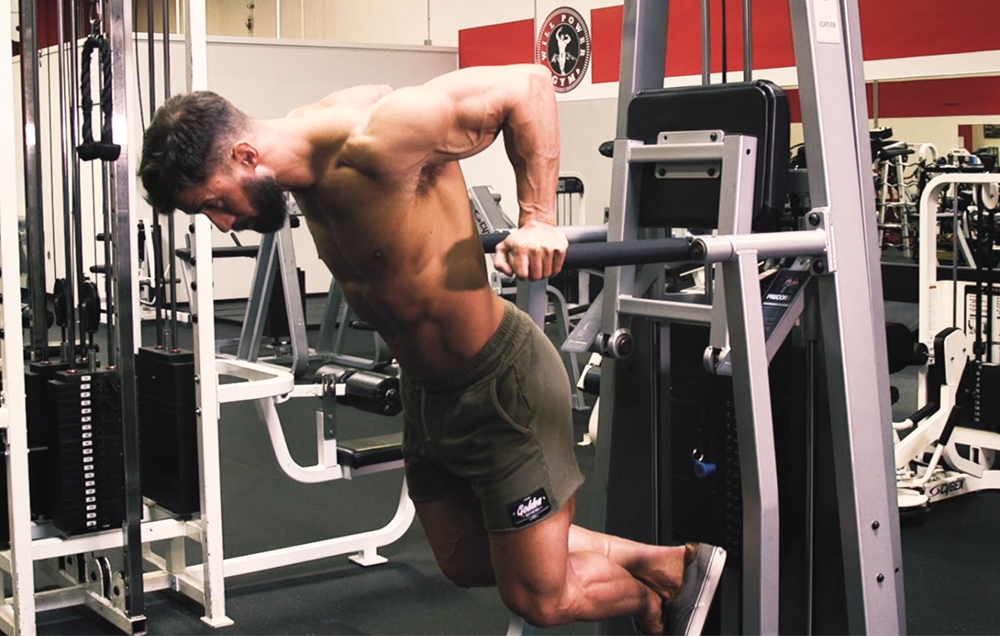
Sports medicine and exercise science expert Dr. Alexios Batrakoulis (PhD, FACSM, ACSM-EP, ACSM-CPT, EIM* in Clinical Exercise Physiology) says, “Muscle strengthening using functional and traditional training remains a major and considerable strenuous exercise giving a substantial development and evidently showing its significant result on health and boosting endurance.”
Another sports medicine expert, (MS, PhD, ACSM-EP) Dr. Rachelle Reed adds,
“Strength training programs are a key part of the mainstay of body strength and core muscle training across the world. Now, many people do practise routine strength training as their longevity programme, strong muscle keeps physical function well, and strong muscles improve our movement, boost blood circulation, and lift our energy levels, and help maintain quality of life.”
What’s Happening with Exercise-Induced Muscle Damage (EIMD)?
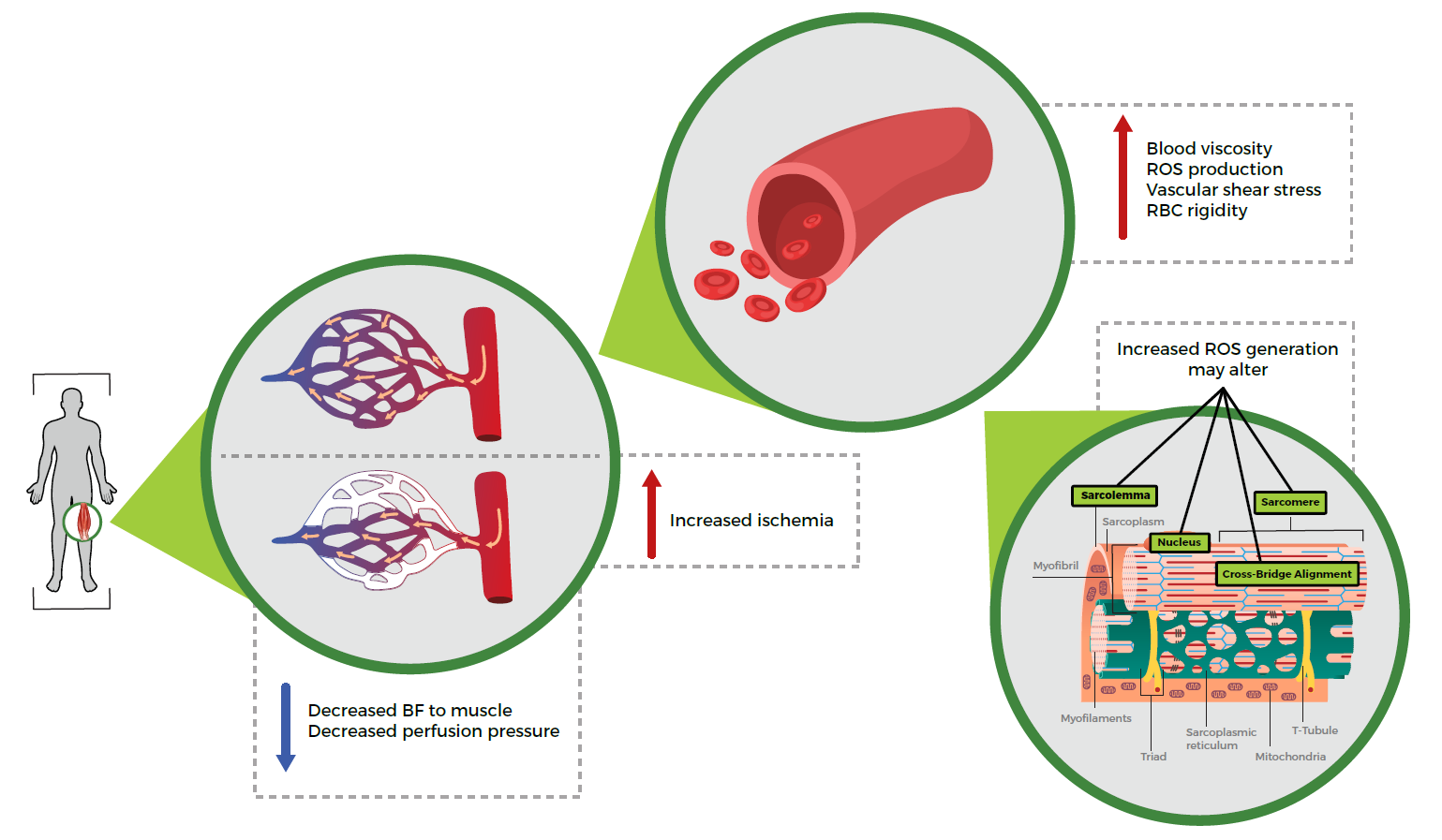
We’ve three major muscle tissues, including cardiac, smooth, and skeletal muscles. All three major types are built upon complex cellular components, Skeletal muscle, cardiac functions, and smooth muscle tissue. And skeletal muscle often plays a major role to ensure our primary movements and posture.
Do you feel muscle sore (pain due to damaged muscle tissues) a day or two after a rigorous workout session? That’s called EIMD. It commonly happens when a new athlete participates gets damages their muscles when participating in a new workout, learn new techniques in the gym to target major muscle groups, or pumps up the volume or intensity of their routine. EIMD can make you feel a little performance drop for a while, and it is commonly caused by striated muscles or sarcomere muscle cells (constant tension due to isometric muscle contraction). You might feel more tired, your muscles might not be as strong, and you might just feel sore. The worst of it usually hits you 24 to 48 hours after your workout.
Why Muscle Strains Happen?
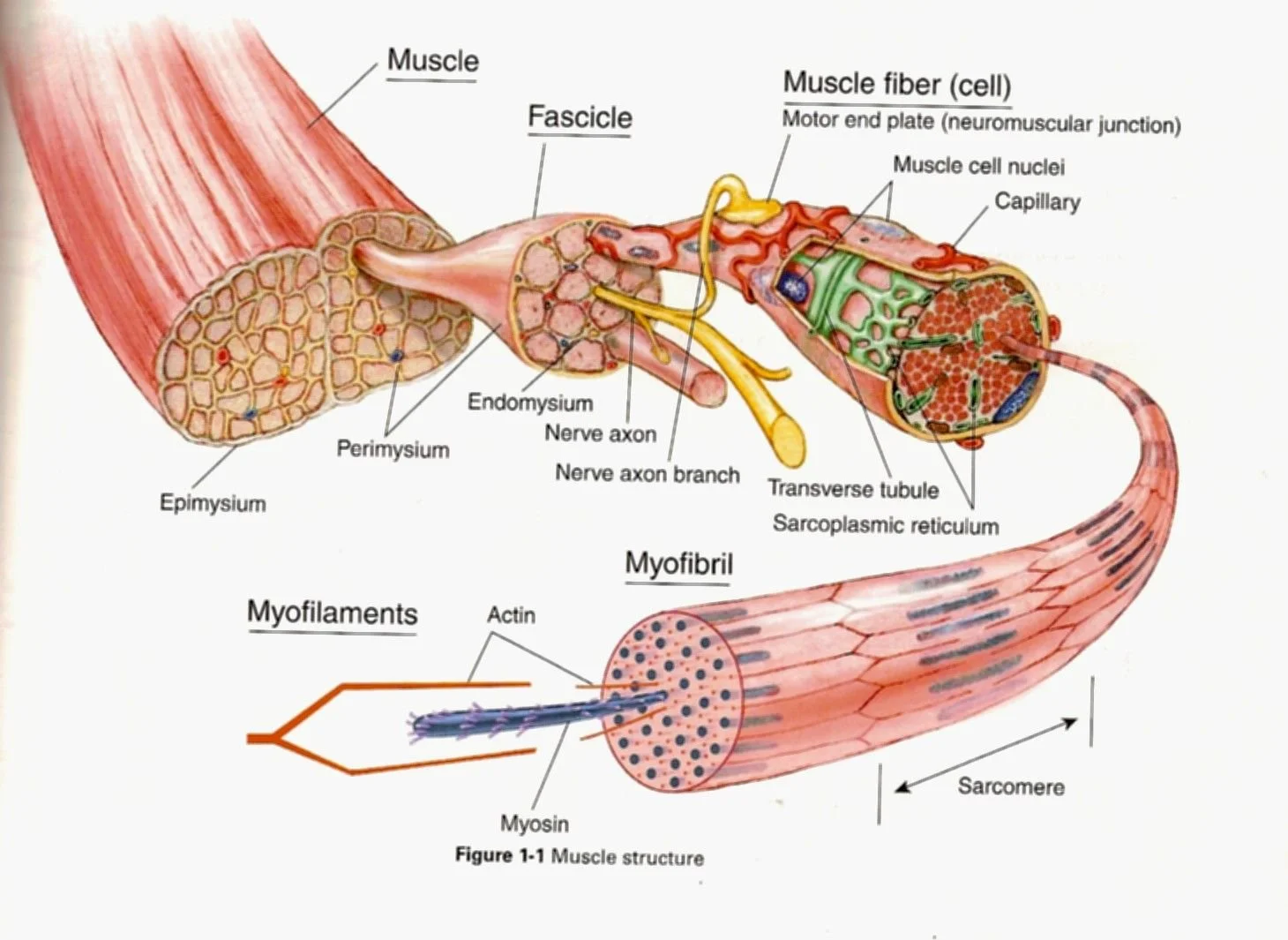
Exercise-induced muscle damage has been a major topic in sports science and exercise integrity research for over 30 years. It refers to a condition that happens when short changes in the architecture of cells, called higher myofibrillar disruption, happen after strenuous eccentric contractions due to heavy-weight and flow-restricted exercise, leading to disrupted skeletal muscle power and strength, triggering delayed onset muscle soreness, muscle swelling, a reduction in normal arc of movement, and an increased in protein-rich fluid flows into the interstitial cells, and a rise in skeletal muscle temperature.
Muscle strains happen when muscle fibers tear or may cause overstretch of a muscle fibers or tendon. This often happens when your muscle is stretched too far or too fast. Think about it: a muscle strain is an overstretched of fibrous tissues or a tear in a muscle. In weightlifting, this can happen if you lift too much weight without a good warm-up, use bad form, or don’t let your muscles rest between sessions.
Symptoms of a Muscle Strain!
You will know it when you feel it. Here are some signs:
- A sharp pain in the muscle
- Swelling and bruising
- Trouble moving the muscle
- Pain when you touch the muscle
- A muscle cramp or a spasm
You decide to try something new, maybe adding weighted squats to train your glutes, hamstrings, and quads or a different kind of deadlift heavy to target multiple muscle groups. The next day, you feel muscle stiffness mostly in your lower and upper middle back. Your muscles are sore. This is a common effect of Exercise-Induced Muscle Damage (EIMD)!
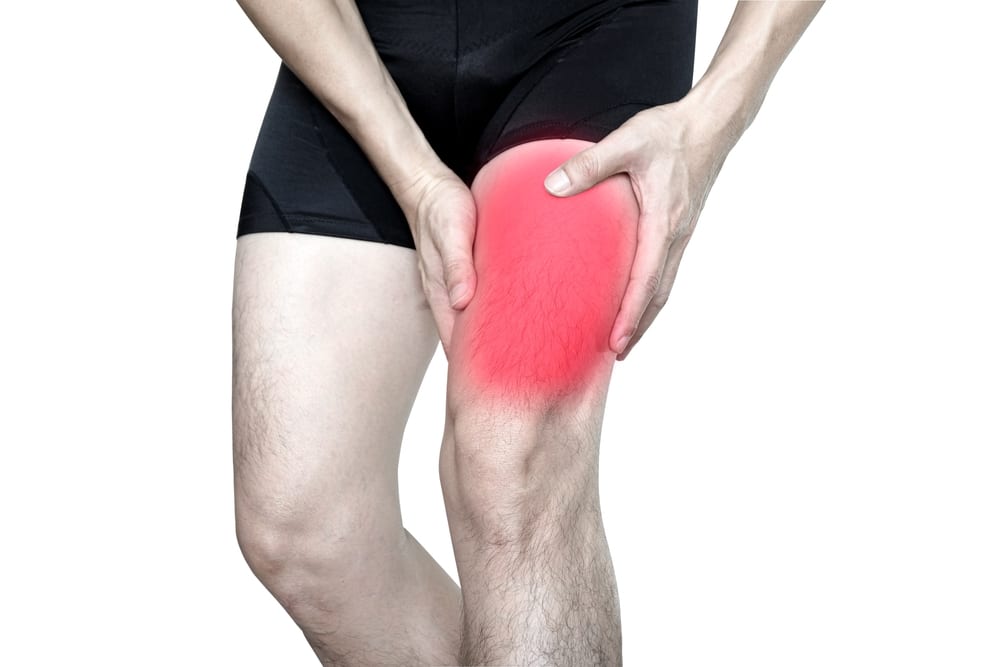
EIMD may lead to muscle Hypertrophy, which is generally a good thing, and this damage yields muscle size gains and builds muscular strength.
When you do certain exercises, especially where you put muscles under lengthened tension during force production (like adding extra weights in a bench press), it gives you tiny tears in your muscle fibers. Scientists call this eccentric contraction.
When you do an eccentric contraction, you pull on that rope until a few of the smaller ropes fray or break. This sounds bad, but your body is smart. It repairs tiny tears during resting hours, and starts to grow your muscle; it makes the skeletal muscle stronger.
This is different from a concentric contraction, where your muscle size is short (like lifting a weight in a bicep curl). Concentric movements do not cause this kind of damage in low-intensity exercise. However, when you hold a weight in place, known as an isometric contraction, you can also cause EIMD.
Why Your Muscles Get Sore After a Workout?

The main reason you lose strength after a strenuous workout session is because of your tiny muscles start tearing after repeated bouts of contraction. When a muscle fiber starts tearing, it can lower your ability to generate force. It’s called sarcomeres, a major contractile unit of muscle fiber that makes your muscle move. During a tough eccentric exercise, these boxes can get stretched out and even “pop.” This reduces your ability to produce force.
When this happens, your body sends a signal. Ca2+ ions overload your muscle cells and transverse tubules structures, which activate enzymes that clean up the damaged proteins. This process is important, but it also causes a temporary loss of strength. The good news is, your muscles quickly adapt to it. The next time you do the same exercise, you will have less soreness and damage.
Common Weightlifting Injuries and How to Avoid Them!

You probably heard the worst cases due to weightlifting injuries, but the most common ones are not broken bones. According to Dr. Braunreiter, a common issue is muscle strains from rapid training or a single intense moment. Your back, shoulders, and C-shaped cartilage knee injuries are the most frequent cases.
Here are the most common weightlifting injuries:
- Back strain
- Rotator cuff strain
- Biceps strain
- Patellar tendonitis
You can also have more serious injuries, like a meniscus tear or an Achilles tendon rupture.
Why do these injuries happen? There are three main reasons:
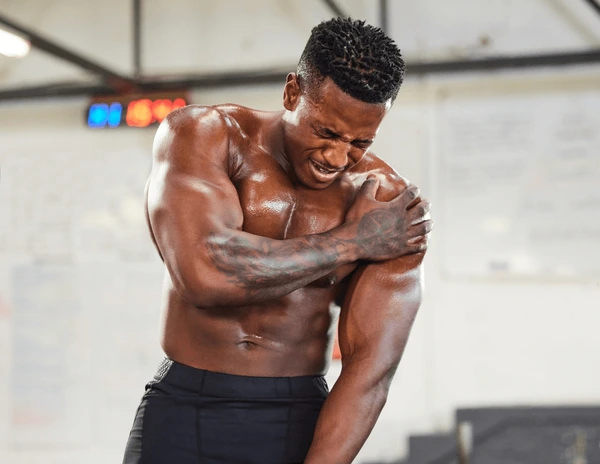
- Doing too much over time (overuse injury): You are putting too much stress on your muscles and tendons without giving them enough time to rest.
- Doing too much at once (acute injury): You lift a weight that is too heavy for you in a single session.
- Using improper form: You are not doing the exercise correctly, which puts stress on the wrong places.
As Dr. Braunreiter says, “With all-out strength, it’s critical to have the right form, load, and ego.” This means you need to leave your ego at the door. Squats and deadlifts are great exercises, but they are also a perfect recipe for a lower back injury if you lift more than you can handle or use bad form. Always warm up, use correct form, and listen to your body.
The Muscle Recovery Timeline!
After you have signs and symptoms of EIMD, your strength, speed, and agility can suffer. The biggest dips in gym performance (muscle damage occurred) usually happen about 48 hours after your workout. For all elite athletes, this can be common. But how much of a drop in level depends on how much damage you caused.
- If your strength drops by 20% or less right after you exercise, you will likely get it all restored within 48 hours after exercise.
- But if your strength drops by around 50%, especially when you’re doing a strenuous exercise, your strength might still be down even a week later after exercise.
Feeding the Weightlifters With Nutritional Health Supplements – Nutritional Strategies As Performance Booster!
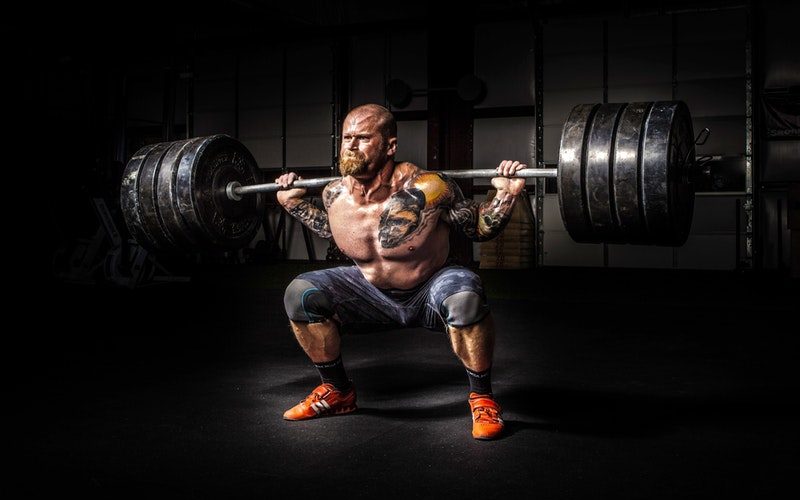
Every drop of sweat gives a shine for tomorrow. Pushing limits is characterised by overcoming adversity, and today’s muscle soreness makes you stronger tomorrow.
Weightlifting is like a series of quick, forceful bursts. To keep doing this, your body needs healthy nutrition supplements containing all the biologically active organic compounds teeming the muscle-repairing process and strength-boosting needs. This isn’t just about what you take in your pre workout supplement, intra-workout and post workout supplement before a competition day. It’s about what you eat every single day to support your hard training and help you recover.
Countless elite athletes (both men and women) across the world, especially aim to achieve the highest levels by setting up their physical training and nutritional diet plan to achieve rewards in the highly competitive stage. So your choice for the best health & nutritional supplements is everything. It can directly influence your aerobic exercise performance and make you feel stronger, how fast you recover, and how much energy you have. In a big stage world-class competition, a combination of good nutritional health supplements and well-strategic diet plans can make you win or lose.
To excel in Olympic stage weightlifting, you need great strength, intense bursts of power, and excellent synchronisation of sensorimotor control, all of which come from intense training and proper nutrition direction.
Different biological functions in weight lifting make you stronger, such as building strength, faster muscle recovery, fatigue management after exercise, and metabolic boost, and choice of nutritional status, which are highly required in any high-stakes competitions.
In brief bursts of power and energy for explosive lifts of weights, the body relies on a system called the ATP-PC (adenosine triphosphate–phosphocreatine) provides short-duration energy replenishment for full effort. It’s like a high-octane fuel for quick bursts of effort. To keep this system running strong, you need to eat plenty of carbohydrates before you lift, and a steady amount of protein intake for muscle repair is an essential technique that contributes to enhancing performance, especially on competition day, requiring many attempts in a short period of time.
Additionally, post workout nutrition is even more critical. You need to get a good amount of carbs and protein along with post-workout nutritional health supplements into your body to start repairing in your resting mode.
A perfect post-workout nutrition shortly after training helps restore your muscle’s energy stores (glycogen) and kick-starts muscle protein synthesis (MPS). MPS is the process of repairing existing muscle proteins and/or building new muscle proteins. Studies have recommended that eating high-quality proteins, like taking whey supplements, shortly after a workout can really speed up your recovery and help add new muscle fibers or ensure growth of muscle cells.
Importance Of Adding Nutritional Health Supplements To Your Routine!
Nutritional health supplements, especially in weightlifting and gymming, play a big role. Using well-touted workout supplements designed to boost exercise and athletic performance:
- Micronised Creatine Powder: Prominent use of micronized creatine monohydrate powder (3-5 g/day) is largely studied as an ergogenic aid and many evidence-based studies show its ability to improve intramuscular phosphocreatine stores in the muscles. This gives you more power for those short-term improvements, improves fat free mass, leads to growth in muscle morphology, and helps high-intensity lift capacity. The International Society of Sports Nutrition (ISSN) published a report on creatine supplementation in 2017 for its safety use and efficacy in exercise, sport, and medicine.
- Beta-Alanine: This helps your muscles handle the buildup of acid during tough, repeated high intensity interval training. It’s like a buffer that delays muscle fatigue, letting you push a little longer.
- L-Glutamine: Glutamine muscle recovery is a widely used post-exercise dietary supplement, which could accelerate post-workout muscle damage, reduce muscle fatigue, and promote lean muscle mass with predominantly eccentric actions.
While these supplements can give you a real edge, you have to consider things like long-term safety and how your body responds.
